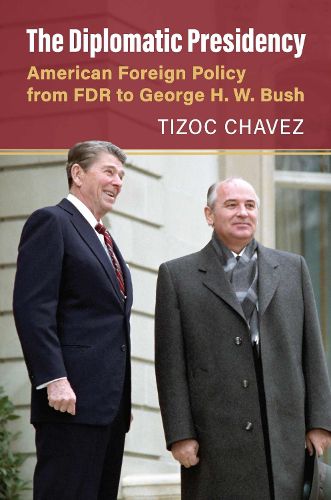President Woodrow Wilson riding down the Champs-ElysEes in December 1918 to meet with the leaders of the victorious Allies at the Paris peace conference marked a break from a long tradition where US presidents directed foreign policy, and direct engagement with foreign counterparts was not considered a central duty. Not until the arrival of Franklin D. Roosevelt’s administration over a decade later would this change. In The Diplomatic Presidency: American Foreign Policy from FDR to George H. W. Bush Tizoc Chavez reveals the long-overlooked history of the rise of personal diplomacy as one of the core responsibilities of the modern president. The modern presidency as it took shape during the FDR era is characterized by rising expectations, sensitivity to public opinion, activism in the legislative arena, a propensity to act unilaterally, and a vast executive branch bureaucracy, all of which contributed to shaping the necessity and practice of presidential personal diplomacy. Tizoc Chavez takes a comprehensive approach and provides a thorough, archival-based examination of the causes that led presidents to conduct diplomacy on a more personal level. He analyzes personal diplomacy as it was practiced across presidential administrations, which shifts the focus from the unique or contingent characteristics of individual presidents to an investigation of the larger international and domestic factors in which presidents have operated. This approach clarifies similarities and connections during the era of the modern presidency and why all modern presidents have used personal diplomacy regardless of their vastly different political ideologies, policy objectives, leadership styles, partisan affiliations, and personalities, making the practice a central aspect of the presidency and US foreign affairs. This cross-administration exploration of why the presidency, as an institution, resorted to diplomacy at the highest level argues that regardless of who occupied the modern White House, they turned to personal diplomacy for the same reasons: international crises, domestic politics, foreign leaders seeking them out, and a desire for control. The Diplomatic Presidency bridges the gap between history and political science by balancing in-depth case studies with general explanations of broader developments in the presidency and international and domestic politics for a better understanding of presidential behavior and US foreign relations today.
Read More





